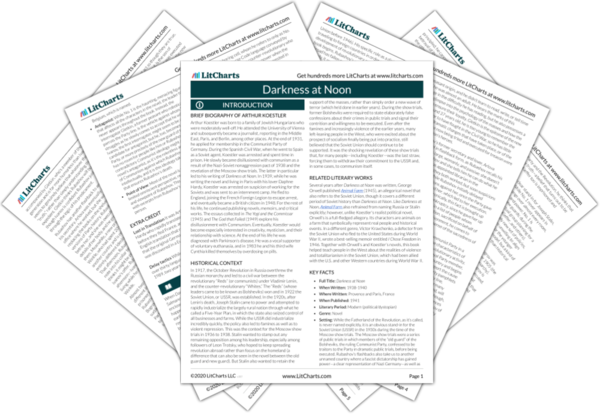Rubashov has been plagued by toothache for years, since well before his imprisonment: he’s bothered by it during his travels as a diplomat in Germany, for instance. It’s particularly bothersome to him when he arrives in prison, and it serves as an excuse for him to refuse to eat. Gradually, however, the pain that Rubashov feels in his tooth comes to be associated with a more intellectual and even emotional “ache” or sense of unease. It is when he begins to think of individuals—of what he dubs the “grammatical fiction”—that Rubashov inevitably begins to feel his tooth ache once again. Conversely, when he’s concentrating on his physical needs or on the day-to-day life of the prison, without musing further on his own past and current condition, the problem fades away. The toothache thus represents Rubashov’s gradual realization, over the course of the novel, that he has potentially been accounting for history and for individual lives according to a mathematical formula that simply doesn’t work. At the same time, a toothache is dull and unpleasant without being overpowering. Rubashov’s sense of unease, too, never bursts out into a dramatic scene of outrage, disavowal, or conflict: instead it festers within him, minor but persistent, and urging him to face his own past.








